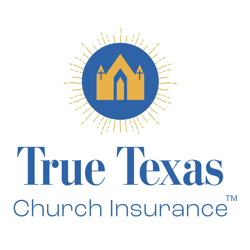The wrong time to discover that you do not have insurance coverage for something is after it has already happened. Unfortunately for many Texas churches that are being forced to change their insurance providers due to non-renewals or cancellations. These church insurance companies are leaving the state of Texas and forcing folks like Stan to secure new coverage for his Austin church.
Stan is the church treasure for a growing congregation in an Austin suburb. As he began shopping for a new commercial liability insurance policy, an agent asked how far back his Directors & Officers (D&O) insurance went. Stan had never encountered this question before and felt a wave of confusion wash over him. Stan's dilemma is not uncommon. Many church leaders are unaware of the intricacies of insurance terms and conditions, especially when it comes to retro dates in professional liability and D&O liability coverage.
As Stan dug deeper, he discovered just how important these details were, not only for his peace of mind but for the financial stability of his church. He had never had to worry about a retroactive date and all that it does for professional liability policies. The term "retro date" was foreign to him, and he realized he needed to understand it to protect his church properly.
Does All Liability Insurance Require A Retro Date?
Not all liability insurance requires a retro date, but certain types of coverage, such as professional liability and Directors & Officers liability, often do. These coverages are usually provided on a claims-made basis rather than an occurrence basis. This was a clue for Stan to learn something he was unaware of previously.
Claims made means that the policy will only cover claims made during the current policy period. With a claims-made policy, if the claimable event occurred during the period of time prior to the current insurance policy your church is at risk of not having coverage unless a retro date is established. This makes understanding and maintaining retro dates vital for comprehensive coverage.
Claims-Based versus Occurrence-Based Insurance
Understanding the difference between claims-based and occurrence-based insurance is important for church leaders. Claims-based policies cover claims made during the current policy period, while occurrence-based policies cover events that happen during the policy period. When the claim is made for an insurable event becomes wildly more important for a claims based policy.
Most property insurance policies in Texas are an occurrence policy. It is easy to understand that hail falling from the sky during the time period my policy was in effect means that the insurance company will cover it and make me whole. But with a claims-made policy that does not have retroactive coverage, your policy language will exclude acts that occurred prior to the current insurance company issuing your policy. Many people don't realize the implications of these differences until it's too late, making an already stressful situation worse.

Pastoral Liability and Directors & Officers Liability
Stan's next question was centered around one thing. He wanted to know if he had gaps in coverage based on the kinds of liability coverage that his church was evaluating. While Pastoral liability and Directors & Officers liability are essential coverages for churches they are the two most common professional liability policies selected in Texas. As a result, these claims-made basis policies are the most frequent retroactive coverage that is secured by Texas churches.
This means a claim made during the policy period for an event that happened before the policy will only be covered if a retro date is in place. Other types of coverage, such as Employment Practices Liability Insurance (EPLI) and Fiduciary liability, also operate on a claims-made basis. Even though they are used less often, they highlight the importance of understanding how retroactive insurance coverage needs to be secured.
What Is A Retroactive Date?
With all of this talk of retro dates and continuous coverage, Stan wanted to make sure that he understood exactly what his current insurer was doing. A retroactive date allows coverage for claims arising from events that occurred before the current policy's start date. Without this date, insurance companies won't cover such claims. The claims-made policy's retroactive date limitation creates a hard line in the sand where coverage is cut off for an event in relation to that date. Coverage for events that have happened in the past can be tricky, but Stan now felt he had a handle on this. We also informed him that a new insurance company typically requires proof of prior coverage to establish a retroactive date inception. This is to make sure of protection for past actions. Your new insurance provider will not extend coverage into the past if you were not carrying continuous insurance coverage prior to them taking over.
What Information Do Insurance Companies Require To Cover A Retro Date?
Stan was ready to go and make sure that his new policy had previous acts coverage. To establish retro dates in insurance, the new insurance company needs the current policy, including the listed retroactive date inception on that policy. They will also require the entire policy language, including any endorsements or exclusions. This is to make sure that you aren't giving up coverage for incidents and they aren't providing coverage for risks that weren't previously covered. Having this information upfront helps streamline the process of securing the right coverage and an experienced church insurance specialist will expect it from you.
Securing Church Insurance With A Retro Date
True Texas Church Insurance works diligently to secure a customized insurance solution that has the best coverage for your church including a retro date. Not only having current policy information available for experienced church insurance agents is important for a smooth transition, but also being able to have items like Loss Runs. These details are significant, and an experienced agent will ask many questions to make sure that your church's needs are met. This process is at the heart of True Texas Church Insurance. Stan went from feeling overwhelmed to relieved by the time he had finished this process.
Working With Insurance For Texans To Get Coverage
Insurance For Texans specializes in helping Texas churches protect their future with customized insurance plans. Our goal is to make sure that policy coverage matches your church’s ministries, activities, and unique needs. Insurance For Texans is the exclusive home of True Texas Church Insurance, and our experienced church insurance specialists will help find the right coverage at the best price while evaluating multiple insurance companies for you.
Click the button below to learn how True Texas Church Insurance can help protect your church with the right coverage, including understanding retro dates for your policies.



